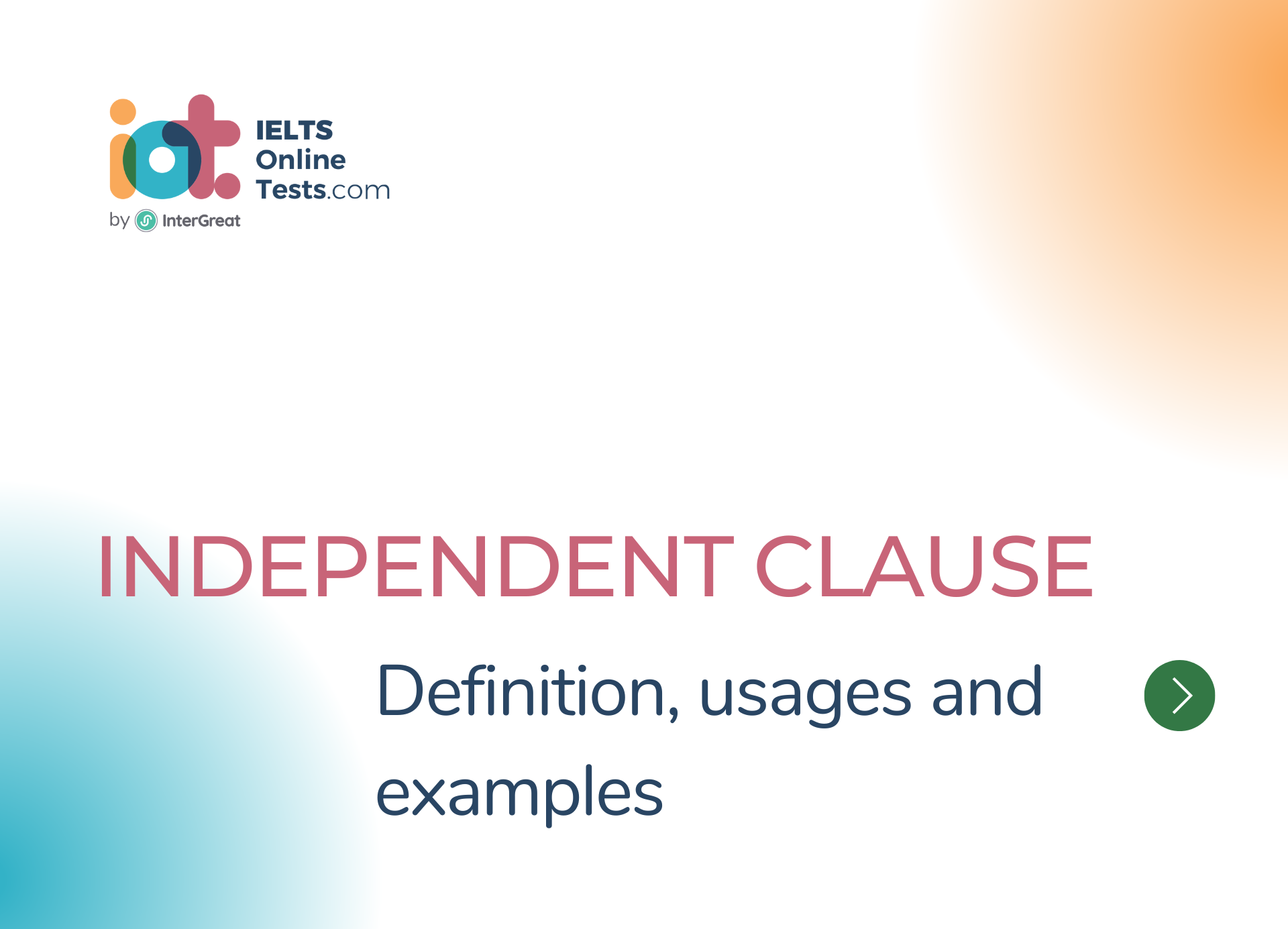
Independent Clause
An independent clause, also known as a main clause, is a type of clause that can stand alone as a complete sentence. It contains a subject and a predicate and expresses a complete thought.
Here are some key points about independent clauses:
Subject and Predicate:
- An independent clause consists of a subject, which is the person, thing, or idea the sentence is about, and a predicate, which contains the verb and provides information about the subject.
- Examples:
- "She sings beautifully." (subject: "She"; predicate: "sings beautifully")
- "They arrived late." (subject: "They"; predicate: "arrived late")
Complete Thought:
- An independent clause expresses a complete thought or idea on its own. It can form a standalone sentence because it doesn't require additional information from other clauses.
- Examples:
- "I want to travel the world."
- "He studied hard for the exam."
Punctuation and Capitalization:
- Independent clauses are usually punctuated with a period (full stop) at the end when they are presented as separate sentences.
- The first letter of the first word in an independent clause is capitalized.
- Examples:
- "She sings beautifully."
- "They arrived late."
Functions in Sentence Structure:
- Independent clauses can function as complete sentences, but they can also be combined with other clauses to form more complex sentences.
- They can act as the main clause in a sentence or be part of a compound sentence, complex sentence, or compound-complex sentence.
- Examples:
- "She sings beautifully, and everyone enjoys her performances." (compound sentence)
- "I will go to the party if I finish my work." (complex sentence)
Independent clauses are fundamental building blocks of sentences. They express complete thoughts and can function on their own as standalone sentences or be combined with other clauses to create more complex sentence structures. Understanding independent clauses is important for constructing clear and coherent writing.




